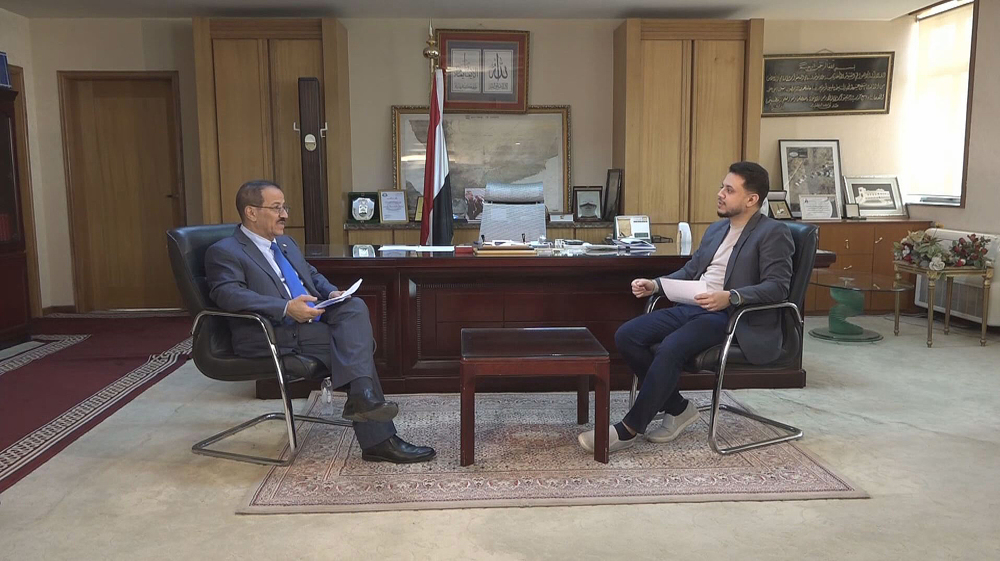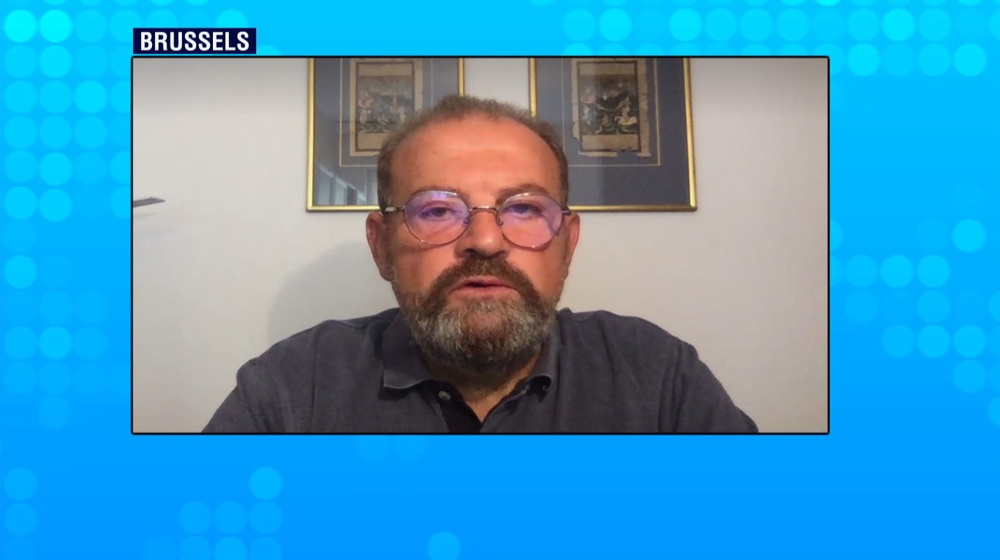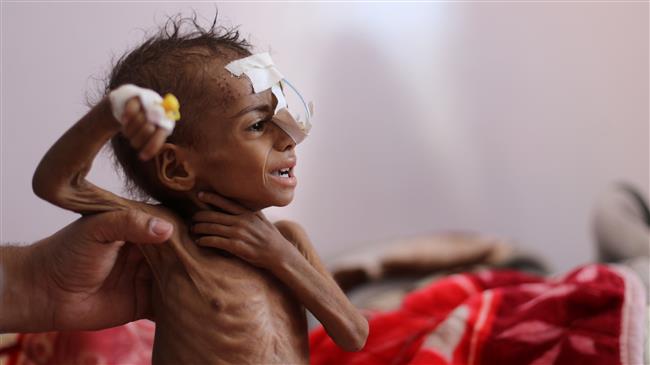'Saudi war on Yemen absolute policy failure'
“The world’s largest humanitarian crisis.” That is how the United Nations describes the current situation in Yemen caused by Saudi Arabia’s prolonged military onslaught and all-out blockade. Riyadh’s aerial campaign is said to have claimed the lives of 12,000 people since March 2015 and pushed millions of others to the brink of starvation. Still, that doesn’t seem to be a compelling enough reason for the UN to take action and put a stop to the humanitarian tragedy unfolding in the Arab country. Following is a synopsis of Press TV’s interview with Michael Lane, the founder of American Institute for Foreign Policy, and Muhammad Ali Carter, a journalist and political commentator, about the UN's unresponsiveness to Saudi crimes in Yemen.
Michael Lane maintains that Saudi Arabia’s allies in the UN Security Council are well aware of the dire humanitarian situation in Yemen, but they are deliberately overlooking “the mistakes” for the sake of the ultimate objective that Riyadh is pursuing in the country which is eliminating the threat of the Houthis.
“The stated objective is to return the internationally recognized government of president Hadi back to power in Yemen. The international community, since it still recognizes president Hadi as the legitimate ruler, would be a supporter of that. Therefore, they are inclined to be a supporter of the Saudi campaign and its objectives,” Lane noted.
But the second and the most important objective of the Saudi military offensive is to crush forces allied with the Houthi fighters, he continued, adding that Western countries are extremely worried about the consequences that the empowerment of Houthi forces could have for their main ally in the Middle East, Saudi Arabia.
“Most people in the United States and in the West believe that as Yemen becomes more and more destabilized, if the Houthi rebels are successful in taking over more and more of the country, once they have consolidated their gains, consolidated their power, then they would turn their power northward towards Saudi Arabia in terms of destabilizing that country. That is something that the United States and most of the West view as completely unacceptable,” the analyst said.

However, Muhammad Ali Carter, the other panelist on the show, opined that the crimes Saudi Arabia is committing in Yemen are something more than simple “mistakes,” adding that whenever a country makes a mistake, it usually tries to indemnify the victims, while Saudi Arabia has shown no sign of regret so far.
“It is a massive list of mistakes. Even Saudi Arabia is beginning to realize that it can’t keep ignoring these so-called mistakes because it is actually staying to admit them and apologize for them,” Carter said.
He also reiterated that despite the promise of defeating the Houthis in a matter of a week, Riyadh has not achieved its basic goals in Yemen after more than two years of airstrikes and, hence, it is seeking revenge on the Yemeni people through it aimless bombardment.
“I think Saudi Arabia’s foreign policy is being so badly run that they are somehow hoping that if they pound the country into the dust, they can eventually pull a victory out of this complete mess. That is their policy on Yemen. “
“So, this is something more than a mistake. This is an absolute failure of policy,” Carter underlined.
Saudi Arabia has been leading a group of its allies in a non-UN-sanctioned war on Yemen since March 2015.
The Saudi regime has come under criticism over mounting civilian casualties. While coalition forces are receiving military assistance from the United States and the United Kingdom — including in the form of intelligence sharing and target acquisition — they have been increasingly hitting civilian targets.
Diplomat discourages recourse to pressure, intimidation, confrontation against Iran
UN: 2024 deadliest year for aid workers amid genocide in Gaza
Gaza health official warns of hospital shutdowns within 48 hours
Israel kills 5 more paramedics in southern Lebanon: Health ministry
Iran to launch ‘new, advanced’ centrifuges in response to IAEA resolution: AEOI
Yemen fires hypersonic missile at Israeli airbase
VIDEO | New Delhi chokes under toxic smog as air quality remains at hazardous levels
VIDEO | Press TV's news headlines









 This makes it easy to access the Press TV website
This makes it easy to access the Press TV website